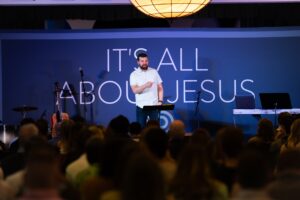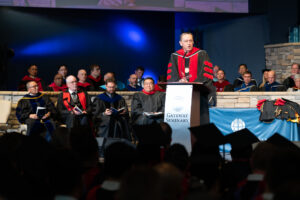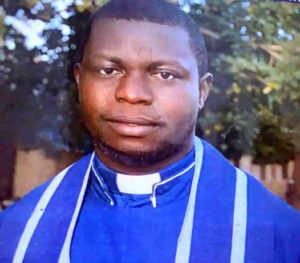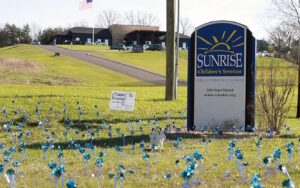
LONDON (BP) — “Jesus will keep you from going straight to hell!”
[QUOTE@right@150=“Thank you for talking to me.”
— Somali woman to student researcher]The Caribbean lady shouted until her voice went hoarse, parting the multicultural sea exiting a London mall as she stood preaching in the doorway.
Young girls with covered heads gawked at her as they passed by. What was that look? Wonder? Fear? Revulsion?
It was hard to say.
Looking at them, they’d come from everywhere, possibly places where most Americans can’t go. I wondered if this moment was the first time they had heard the name of Jesus here in London or in their home countries — and if so, what they thought of Him now.
There was only one way to find out.
Ask.
Asking is a part of my job as a writer in Europe for the International Mission Board. But this week the questions were being posed as part of an ethnographic research class from Southern Baptist Theological Seminary in Louisville, Ky.
We were student researchers, there to help the IMB’s London team find unreached people groups — identify where they live, eat, shop and worship. In the morning, our professor prepped us on research procedures and cross-cultural issues; in the afternoons we went out to practice what we had learned.
The residents of London’s Stratford community where the Olympic Park is located are so diverse you could grab the first 20 people you saw and few, if any, would be of the same ethnicity. As people groups, they’re splintered, largely choosing not to live in enclaves for social, financial and political reasons.
Add to that the fact that they walk with their heads down, constantly buffeted in their neighborhoods by street preachers and charity solicitors, and a student researcher has got a challenge.
“Hi, I’m a student doing research, and I just wanted to ask you three quick …”
“I’m sorry, I have no time,” one lady said, even though she was sitting alone in her shop on the street with no customers.
It’s easy when you read about the IMB’s varied initiatives to go straight to the hands-on work, or use the statistics and strategy without thinking about where they came from.
But someone had to learn the ropes of ethnographic research and do the legwork of figuring out who’s where, who’s open to conversations and how to meet their needs strategically.
“Hi, how are you?” I asked, sidling up to a woman covered in black so that only her face was showing. She was leaning against a coffeehouse watching the woman preaching nearby.
She was well. We struck up a conversation. She was Somali by birth. Highly educated. Working as an interpreter but felt because of her dress and religious background no one treated her with the respect she deserved. Her eyes smiled when she spoke.
“Thank you for talking to me. People rarely take me seriously,” she said.
Somalia, a very closed country, has eight unengaged unreached people groups (UUPGs), some or all of which may have representation in London. That afternoon, she was the fourth Somali woman I talked to at length in the same hour while others turned us away. The Somalis seemed just waiting for someone to talk to them.
I think we found something.
–30–
Ava Thomas is a writer/editor for the International Mission Board based in Europe. She is also a distance student of Southern Baptist Theological Seminary in Louisville, Ky. Get Baptist Press headlines and breaking news on Twitter (@BaptistPress), Facebook (Facebook.com/BaptistPress ) and in your email ( baptistpress.com/SubscribeBP.asp).














